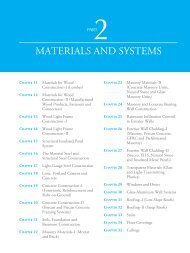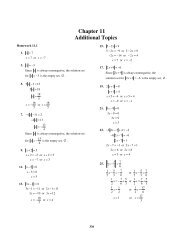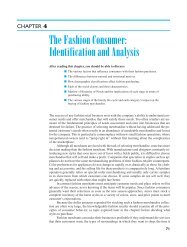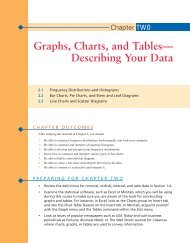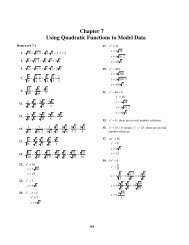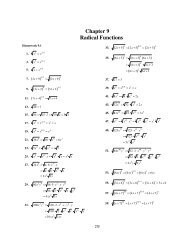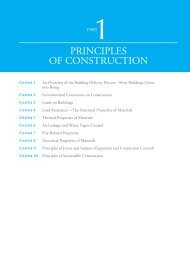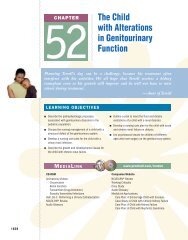Baldwin/Whiteside: Introduction to Contracts - Pearson
Baldwin/Whiteside: Introduction to Contracts - Pearson
Baldwin/Whiteside: Introduction to Contracts - Pearson
Create successful ePaper yourself
Turn your PDF publications into a flip-book with our unique Google optimized e-Paper software.
Or “It ain't just offer, acceptance, and consideration.”<br />
Chapter Three<br />
_____________________<br />
ELEMENTS OF<br />
FORMATION, PART I<br />
_____________________<br />
Offer + acceptance = mutual agreement. This chapter is also major. Unless the student absorbs and can<br />
drone “agreement/consideration/capacity/legal obligation,” he or she will have difficulty.<br />
There is little “extra” <strong>to</strong> suggest <strong>to</strong> you concerning this chapter because it is so utterly basic. Stress<br />
definitions and concepts. Encourage students <strong>to</strong> contribute examples concerning advertisements,<br />
opinions, and prenegotiations on page 22 — concepts with which most consumers have had experience.<br />
Explain that “reasonable” is a frequently used adjective in contract law. Example: what is “reasonable” in<br />
the furniture industry is not “reasonable” in the fresh flower industry. Ask your students why not — some<br />
points <strong>to</strong> consider are that<br />
• the floral industry deals with perishable goods<br />
• the standard means of delivery would vary; flowers must stay chilled<br />
• floral goods are more seasonable than furniture (Valentine’s Day, Mother’s Day), so potential<br />
damage <strong>to</strong> retailer is greater<br />
• the floral industry is more apt <strong>to</strong> market on a daily basis at a central physical location.<br />
On pages 24–25, we usually talk about s<strong>to</strong>ck options given <strong>to</strong> employees as incentives. You may prefer<br />
another illustration. Options on real property come <strong>to</strong> mind, as do options involved in a lease-<strong>to</strong>-own<br />
arrangement. Ask if any student has encountered lease-<strong>to</strong>-own as a consumer.<br />
The term “detrimental reliance” is so much more clear and self-explana<strong>to</strong>ry than “promissory es<strong>to</strong>ppel”<br />
that we teach the latter as a his<strong>to</strong>ric term. Use the term with which you are most comfortable, but do<br />
stress that the terms are synonymous.<br />
When you reach acceptance on page 25, you have another opportunity <strong>to</strong> stress that verbal acceptance<br />
can be just as much a commitment as written acceptance — unless, of course, there is an exception such<br />
as Statute of Frauds or the original terms stating that an acceptance must be in writing <strong>to</strong> be valid.<br />
The mirror image rule on page 25 offers an opportunity <strong>to</strong> contrast common law with the codified UCC.<br />
Under common law, an acceptance must mirror every term of the offer or be considered a counteroffer.<br />
The UCC allows for responses between merchants <strong>to</strong> be negotiation, rather than counteroffer.<br />
When you discuss the mailbox rule, point out that many written contracts specify in the “Notice” section<br />
whether a notice is effective upon mailing, upon receipt, or after a designated period of time has passed.<br />
Starting on page 26, you have another opportunity <strong>to</strong> pound in the concept that bilateral and unilateral<br />
contracts are determined by the number of promises given, not the number of parties participating in the<br />
contract.<br />
Your students should be able <strong>to</strong> produce examples of illusory promises from their experiences as<br />
consumers. This gives the shy non-speaker another opportunity <strong>to</strong> participate in class discussion.<br />
It is difficult for some students <strong>to</strong> get beyond the concept of cash as consideration. We suggest the litany<br />
“Consideration may consist of an action, or a promise <strong>to</strong> act, or forbearance, or a promise <strong>to</strong> forbear.”<br />
7



